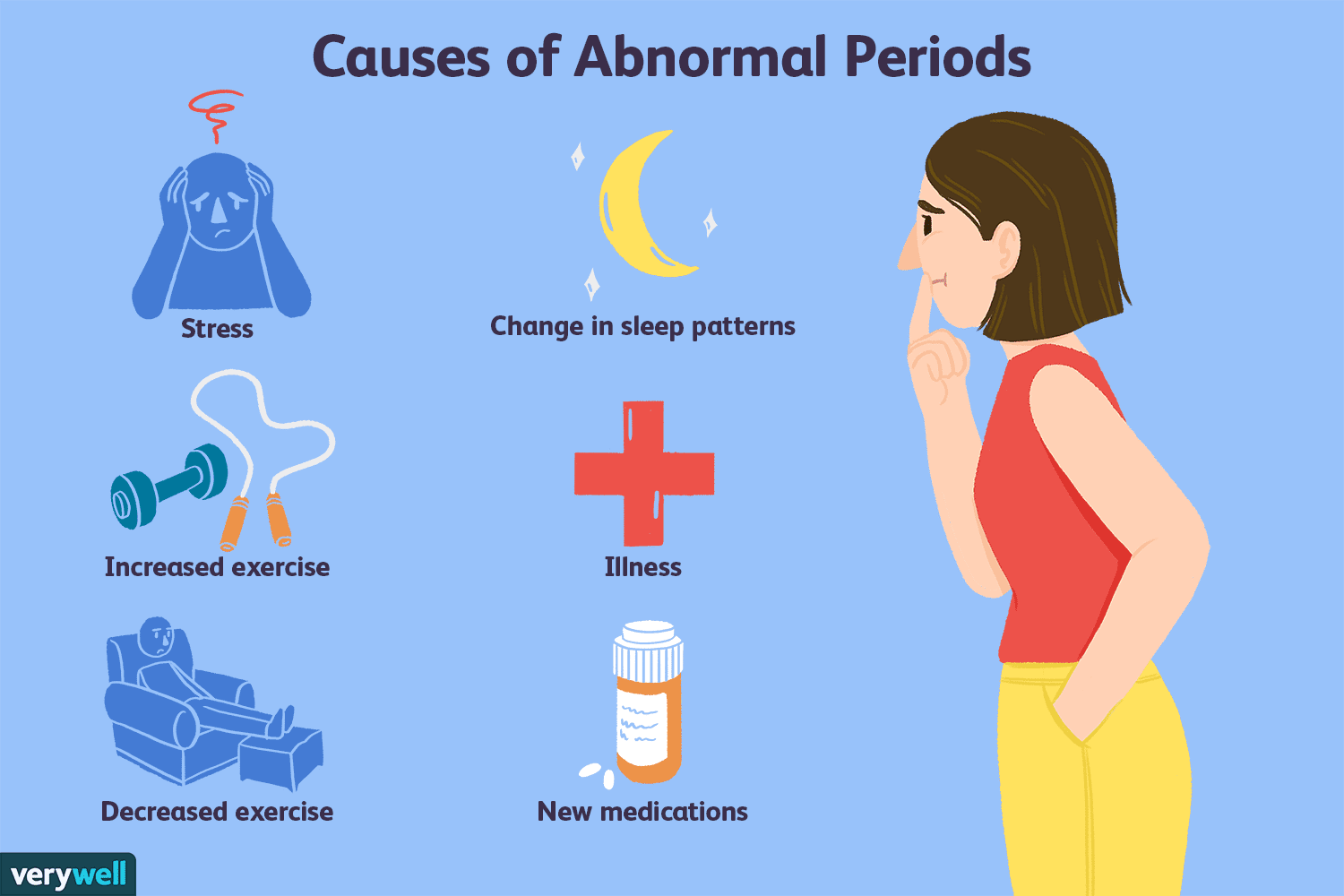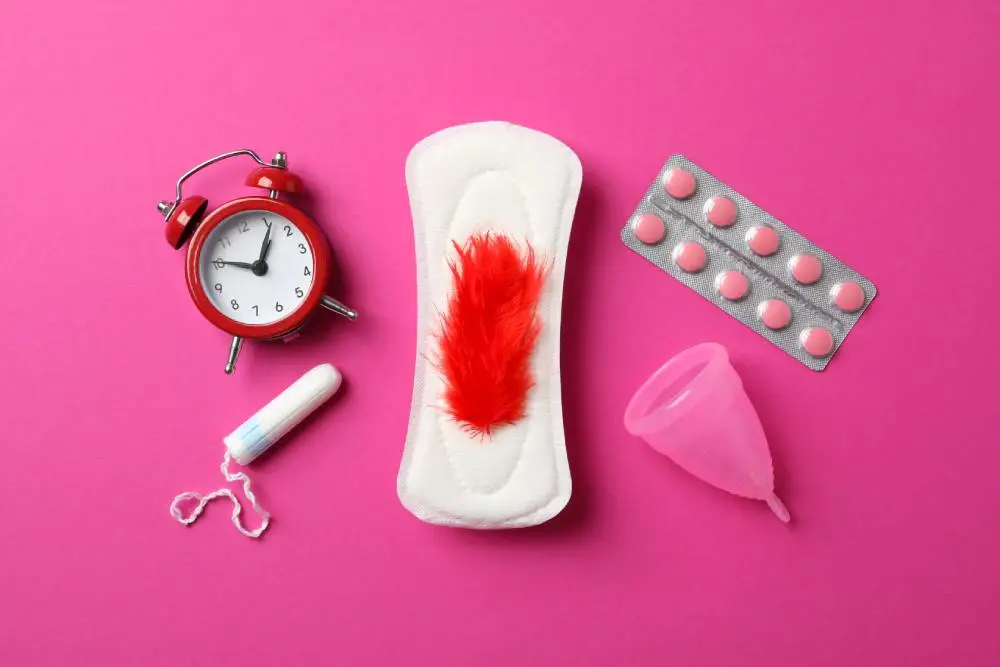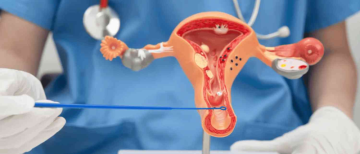In a world where clocks tick differently for every girl, the early whispers of menstruation carry profound implications.

Menarche, the start of menstruation, signals the onset of a girl's reproductive years and is a key milestone in her physical and emotional growth. Typically occurring between ages 9 and 16, the average age can vary widely due to numerous factors. Recently, there's been a trend of girls hitting puberty earlier, sparking concerns among researchers, healthcare providers, and parents due to the potential impacts on girls' physical, psychological, and social health.

Primary causes associated with earlier onset of menstruation
-
Family Environment and Urban Living: Early menarche is common in girls from stressful family settings, foster care, or living with a stepparent, likely due to varied lifestyle and psychological factors. Urban living also correlates with earlier menarche compared to rural settings.
-
Socioeconomic Status (SES) and Ethnicity: Girls from high SES families tend to reach menarche earlier than those from lower SES backgrounds. Ethnicity plays a role, with African American and Hispanic girls experiencing menarche earlier than Caucasian or Asian girls. Lower socio-economic conditions also contribute to earlier menarche due to factors like poor nutrition, stress, and environmental toxins.
-
Nutrition: Diet significantly impacts menarche timing. High-calorie intake and obesity are linked to early puberty, as excess body fat increases estrogen production. Girls consuming more animal protein and less vegetable protein between ages three to five also experience earlier menarche.
-
Body Weight and Diet: Overweight and obese girls are more likely to have early menarche. One study noted a 1.7 times higher likelihood of early menarche in overweight girls. Additionally, drinking more than 1.5 sugar-sweetened beverages daily can lead to menarche 2.7 months earlier.
-
Infant Feeding Practices: Formula feeding during infancy is another factor potentially leading to early menarche.
-
Endocrine-Disrupting Chemicals (EDCs): Exposure to EDCs found in plastics, pesticides, and other sources can disrupt hormonal balance and trigger early menarche, especially if exposure occurs during critical developmental periods.
-
Genetics: Family history of early menarche increases the likelihood of early onset in girls. Specific genetic variations have been linked to early menarche, though more research is needed to fully understand these genetic influences.

Primary health risks associated with earlier onset of menstruation
The early onset of menstruation, known as early menarche, presents several health risks for young girls, including:
-
Mental Health Concerns: Early menarche often leads to psychological issues such as sadness, low self-esteem, anxiety, and depression. The stress of maturing faster than peers can result in earlier sexual activity, substance use, and suicidal behavior, driven by misconceptions and fear of being different.
-
Increased Vulnerability: Girls who experience early menarche are at a higher risk of early pregnancy, sexually transmitted infections, and sexual violence.
-
Stunted Growth: Early menarche can cause the premature fusion of growth plates, leading to a shorter adult height than genetically expected.
-
Bone Health: Hormonal changes linked to early menarche can result in quicker bone loss, heightening the risk of osteoporosis and fractures in middle age. However, higher bone mineral density in later life has been observed due to extended exposure to estrogen.
-
Metabolic Disorders: Early menarche increases the likelihood of metabolic disorders such as obesity, type 2 diabetes, and cardiovascular diseases. These girls are more prone to hypercholesterolemia, hypertension, coronary heart disease, stroke, and metabolic syndrome.
-
Increased Risk of Hormonal Cancers: Early menarche heightens the risk of developing breast, ovarian, and endometrial cancers due to prolonged exposure to estrogen. There is a 23% higher risk of breast cancer, exacerbated by abdominal obesity and elevated levels of insulin and growth factors promoting cancer development.

Factors contributing to earlier menstruation in India
The onset of menstruation among young girls in India is influenced by a myriad of factors, creating a trend towards earlier puberty. These factors encompass various dimensions of lifestyle, environmental exposure, and genetic predispositions, each playing a significant role in shaping the timing of menarche. However, it's crucial to discern potential pathological conditions through medical consultation before attributing early menstruation solely to these factors.
-
Sedentary Lifestyle and Poor Diet: The rise in childhood obesity, stemming from inactive routines and unhealthy eating habits, contributes significantly to early puberty onset.
-
Hormonal Treatments in Food: Consumption of poultry and meat treated with growth hormones and antibiotics, along with genetically modified vegetables and cereals, introduces hormonal imbalances that can impact the timing of menarche.
-
Synthetic Chemicals Exposure: Exposure to synthetic chemicals like Bisphenol A (BPA) found in plastics further disrupts hormonal balance, potentially accelerating puberty onset.
-
Environmental Toxins: Dichlobenzene in products such as mothballs and air deodorizers, along with pesticide exposure, poses additional risks to hormonal regulation, influencing early menstruation.
-
Psychological Stress: Intense childhood stress or sensitivity to conflicts can also trigger early puberty onset, reflecting the intricate interplay between psychological well-being and physiological development.
-
Dietary Factors: Overconsumption of soy-based diets during pregnancy and nursing exposes the fetus to phytoestrogens, impacting fetal development and potentially advancing the age of menarche.
-
Fluoride Exposure: Fluoride, added to public water supplies, interferes with melatonin levels, potentially prompting early puberty initiation.
These multifaceted factors underscore the complexity of early menstruation onset in India, emphasizing the need for comprehensive approaches that consider both environmental and genetic influences while addressing potential health concerns through medical assessment.

What can we do?
Parents often overlook seeking guidance from healthcare professionals regarding puberty-related concerns for their children. However, there are proactive steps that can be taken to delay puberty, ensuring a healthier transition for young ones:
-
Prioritize Breastfeeding: Embrace the crucial role of breastfeeding in nurturing infants, as it can potentially influence the onset of puberty.
-
Mind Soy Intake: Exercise caution with non-fermented soy, particularly during pregnancy, and steer clear of soy-based infant formulas to mitigate any potential effects on puberty timing.
-
Embrace Organic Produce: Opt for whole, preferably organic fruits, vegetables, and free-range meats to minimize exposure to added hormones, pesticides, and fertilizers.
-
Choose Fresh Over Processed: Ditch processed, pre-packaged foods laden with soy and harmful chemicals like BPA and phthalates in favor of raw, fresh alternatives.
-
Swap Plastics for Glass: Make the switch to glass containers for storing food and beverages to avoid potential leaching of harmful chemicals found in plastics like BPA and phthalates.
-
Mindful Dairy Consumption: Be wary of dairy products containing genetically engineered recombinant bovine growth hormones, opting instead for hormone-free alternatives.
-
Safe Playthings: Ensure that your child's toys are BPA-free to minimize exposure to endocrine-disrupting chemicals.
-
Natural Toiletries: Opt for natural toiletry brands and steer clear of artificial air fresheners to promote a chemical-free environment.

How can parents and healthcare providers support young girls?
Parents and healthcare providers play pivotal roles in supporting young girls navigating the complexities of early menarche. Here are ways to lend them a helping hand:
-
Open Dialogue: Foster open and honest conversations about puberty and menstruation, providing girls with knowledge and reassurance to navigate physical changes confidently.
-
Emotional Empowerment: Offer unwavering emotional support to help girls cope with the psychological challenges of early puberty. Encourage seeking professional counseling or therapy if needed.
-
Promote Healthy Habits: Advocate for balanced nutrition and regular physical activity to promote overall well-being and mitigate the risks associated with early menarche.
-
Regular Health Monitoring: Schedule routine health check-ups to monitor any changes in physical development or hormonal levels promptly, ensuring timely intervention if necessary.
As the petals of puberty unfurl, nurturing a dialogue and proactive steps with healthcare providers and parents can help guide young girls through the delicate blossoming of their reproductive journey.
With inputs from agencies
Image Source: Multiple agencies
© Copyright 2024. All Rights Reserved Powered by Vygr Media.




















